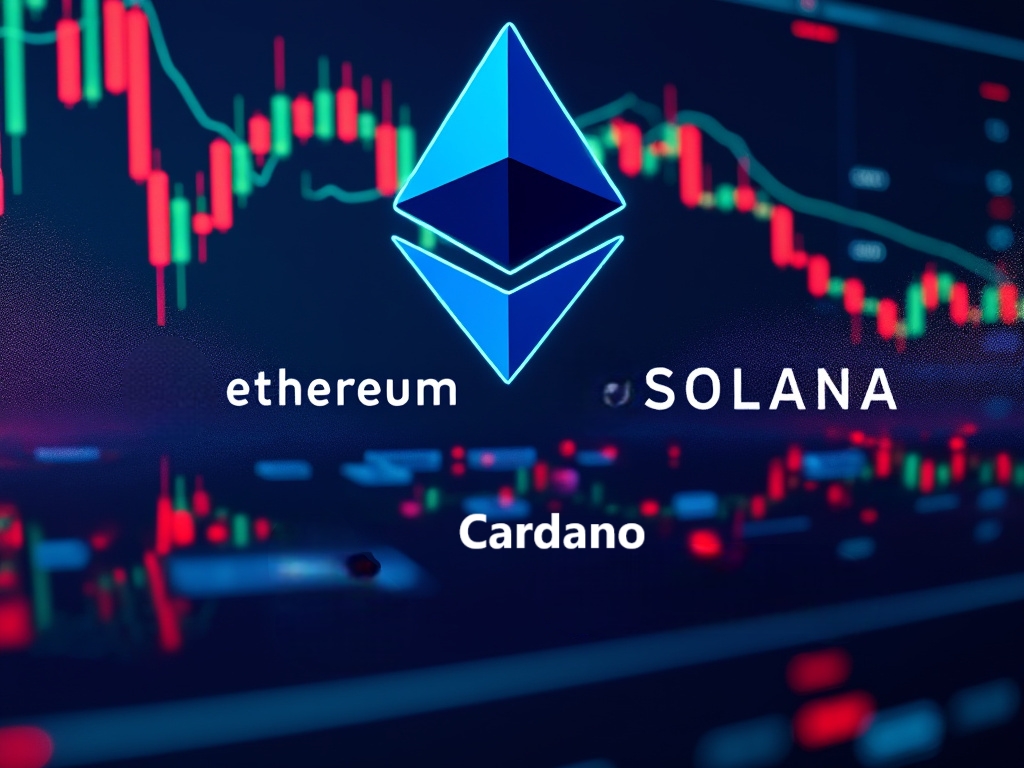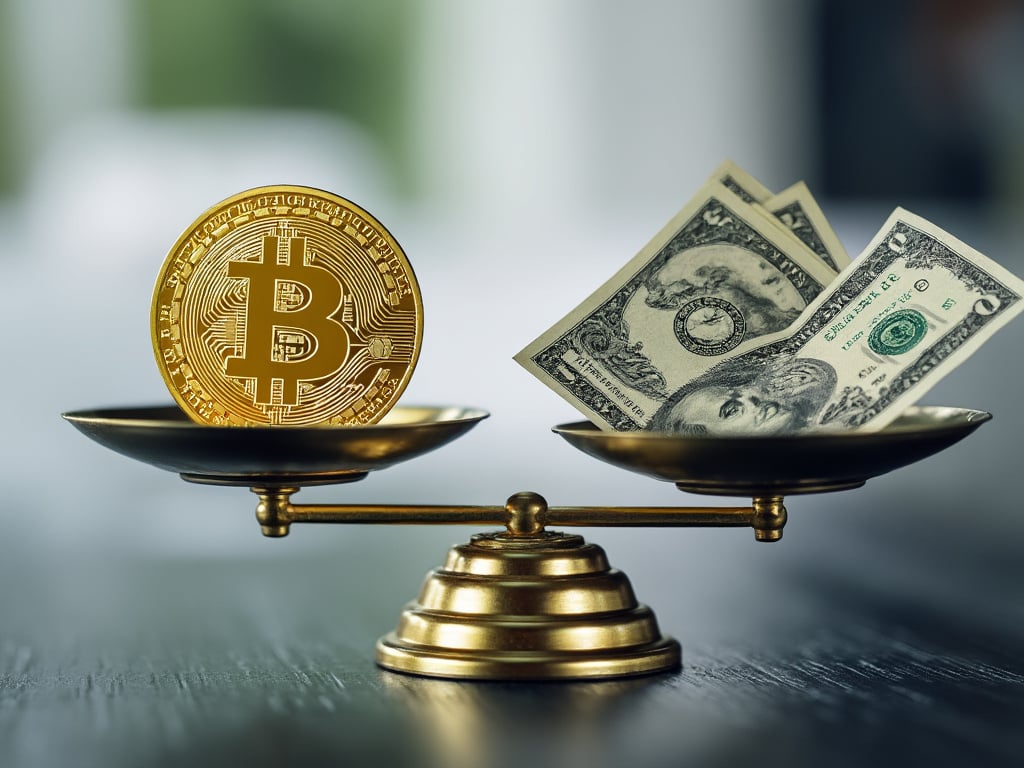As the cryptocurrency market continues to evolve, the term ‘Altcoins,’ also known as ‘alternative cryptocurrencies,’ has gained significant attention. While Bitcoin remains the flagship of the crypto world, Altcoins—or alternative cryptocurrencies—are rapidly growing in popularity. These digital currencies offer unique features and use cases that set them apart from Bitcoin, making them an essential part of the broader cryptocurrency ecosystem. In this article, we will dive into the world of alternative cryptocurrencies, their benefits, and how you can get involved in this ever-expanding space.

What Are Altcoins?
To fully understand the concept of Altcoins, it’s important to start with the basics. What are Altcoins? Simply put, Altcoins are all cryptocurrencies other than Bitcoin. They were developed to address the limitations of Bitcoin or offer alternatives to its blockchain technology. While Bitcoin was the first to pioneer decentralized digital currency, Altcoins have brought new features, functionalities, and innovations to the market.
There are several categories of Altcoins, such as stablecoins, utility tokens, and privacy coins. Each type serves a specific function within the crypto space. For example, stablecoins like USDT (Tether) are designed to maintain a stable value. Privacy coins, such as Monero, focus on ensuring anonymous transactions.
Altcoins have gained popularity. People seek alternatives with faster transaction times, lower fees, and improved security protocols compared to Bitcoin.
What Are the Top 10 alternative cryptocurrency?
The Altcoin market is vast, with thousands of cryptocurrencies available today. However, some stand out due to their market capitalization, use cases, and innovative technology. What are the top 10 Altcoins that have made a significant impact?
- Ethereum (ETH) – Often referred to as Bitcoin’s closest competitor, Ethereum offers smart contracts and decentralized applications, making it the foundation of many blockchain projects.
- Binance Coin (BNB) – BNB is the native token of the Binance exchange, used to pay transaction fees and power the Binance Smart Chain.
- Cardano (ADA) – A blockchain platform focused on security, sustainability, and scalability through its proof-of-stake consensus mechanism.
- Solana (SOL) – Known for its high-speed transaction capabilities, Solana is often dubbed the “Ethereum Killer.”
- Polkadot (DOT) – A multi-chain network that facilitates interoperability between different blockchains.
- Ripple (XRP) – Designed to enable fast and cost-effective cross-border payments.
- Dogecoin (DOGE) – Initially created as a joke, Dogecoin has gained a massive following and is widely used for tipping and charitable donations.
- Litecoin (LTC) – Often referred to as the silver to Bitcoin’s gold, Litecoin is designed for faster transactions with lower fees.
- Chainlink (LINK) – A decentralized oracle network that enables smart contracts to interact with real-world data.
- Avalanche (AVAX) – A platform for decentralized applications with a focus on scalability and low transaction costs.
These Altcoins have shaped the cryptocurrency landscape, offering innovative solutions to a variety of blockchain challenges.
How Altcoins Differ from Bitcoin
The primary difference between Bitcoin and Altcoins lies in their technology and intended purpose. While Bitcoin serves as a decentralized store of value, most Altcoins aim to solve specific problems in the blockchain space, such as transaction speed, scalability, and energy efficiency. For instance, Ethereum introduced smart contracts, allowing developers to create decentralized applications, something Bitcoin doesn’t natively support. Similarly, Altcoins like Cardano and Polkadot are designed to improve on blockchain governance and interoperability.
The emergence of Altcoins has sparked greater competition and innovation within the crypto industry, pushing the boundaries of what decentralized technology can achieve. As more Altcoins gain mainstream adoption, they continue to offer new features that cater to a wide range of user needs.
Where to Buy Altcoins
With the increasing interest in Altcoins, many people are curious about where to buy Altcoins. Fortunately, purchasing Altcoins has never been easier, thanks to the numerous cryptocurrency exchanges available today. Here are some popular platforms where you can buy them:
- Binance – One of the largest and most popular cryptocurrency exchanges in the world, Binance offers a wide variety of Altcoins for trading.
- Coinbase – A user-friendly exchange, especially for beginners, Coinbase provides access to several top Altcoins.
- Kraken – Known for its strong security features, Kraken supports a wide selection of Altcoins.
- KuCoin – This exchange offers low fees and a wide range of Altcoins for those looking to diversify their crypto portfolios.
- Gemini – A regulated cryptocurrency exchange with a strong focus on compliance and security.
When buying Altcoins, it’s essential to use a reputable exchange, ensure your account is secured with two-factor authentication, and consider storing your coins in a hardware wallet for added security.
The Future of Altcoins
The future of Altcoins is promising, with many investors, developers, and businesses continuing to explore their potential. As the cryptocurrency ecosystem expands, Altcoins will likely play a significant role in shaping new decentralized technologies. These technologies include DeFi (Decentralized Finance), NFTs (Non-Fungible Tokens), and DAOs (Decentralized Autonomous Organizations).
You might be interested in reading Real World Asset Tokenization as well.
If you’re looking to diversify your portfolio beyond Bitcoin, exploring Altcoins can offer both new opportunities and a deeper understanding of the blockchain space.
Final Thought – The Growing Importance of alternative cryptocurrency
In summary, Altcoins represent the growing diversification within the cryptocurrency market. As alternatives to Bitcoin, these cryptocurrencies offer unique use cases, technological innovations, and investment opportunities. Whether you’re a developer building decentralized applications or an investor seeking the next big thing in crypto, alternative cryptocurrency are worth your attention.
As demand for blockchain solutions grows, the role of Altcoins will continue to expand. This will drive further adoption and innovation in the decentralized space. If you’re curious about which Altcoins to watch or how to get started, now is the time to dive into the world of alternative cryptocurrencies. Explore what they have to offer.







